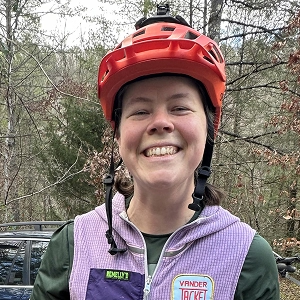

The Unofficial KubeCon EU '26 SRE Track
6 talks to add to your schedule
February 24, 2025
7 mins
Continuous improvement in SAR, wilderness medicine, and ski patrol teams thrives on humility, curiosity, and open feedback. This post explores how training, diversity, and speaking up create stronger, more adaptable teams, fostering both growth and camaraderie.



Over the course of this RescueOps series, I’ve touched on a lot of operational logistics that overlap with continuous improvement and feedback loops: real-time tracking, collaboration, post-incident debriefs, communication channels and flexibility.
So, rather than rehash any of those topics, I’d like to talk about a more systemic contributor to continuous improvement: culture – and specifically, seeking a culture of humility and curiosity.
SAR, wilderness medicine, and ski patrol teams foster some of the best team dynamics I have ever experienced. Certainly there are heavy factors such as the shared sense of purpose through high-risk and meaningful experiences, but a lot of that camaraderie accumulates over time from every-day affairs.
In my experience, there are two things in particular that outshine all other cultural contributors for humility and curiosity: training and diversity.
Training offers an exceptional platform for honing rapid feedback mechanisms. It provides a structured yet experimental space to trial new skills and processes while receiving immediate feedback, allowing individuals to test their boundaries and embrace discomfort.
We humans have a tendency to become complacent when we master a workflow; it’s natural to feel confident and as it takes less energy to do the same task with each iteration. However, this can lead to decreased attentiveness and an overinflated sense of certainty.
Pride is second-nature; humility is not. A culture of humility requires work, especially in environments where senior personnel may cling to their extensive experience. It takes a concerted effort to grow both competent and humble, acknowledging there is always room for improvement.
Training should encourage interaction across different experience levels, presenting challenges that push both senior and junior members to step out of their comfort zones and remain open to learning.
Great training environments should promote a culture where continuous improvement is a shared goal, and team members are encouraged to remain humble by recognizing the value in each other’s insights and experiences, particularly the value in their diversity.
So, I cringe to make this a major bullet-point; I hate being cliche. But I do see this as being one of the single greatest contributors to high-functioning teams.
Diversity encompasses a lot of things (that’s kinda the point): technical, cultural, social, age, experience… A room filled with diverse viewpoints means no single narrative dominates, allowing for more holistic problem-solving and innovation. This kind of diversity also tends to cultivate something truly amazing: curiosity.
SAR teams are full of volunteers from various backgrounds like teaching, engineering, medicine, administration, or firefighting. Such diversity means team members continually surprise each other, sparking curiosity and stoking a desire to understand more about one another’s perspectives. This environment encourages a culture of listening and learning, where team members are as keen to expand their knowledge base, as they are to share their expertise.
One of my Maltese professors likes to say, “When you speak, you’re just repeating what you already know; when you listen, you might learn something new.” This kind of attitude works wonders to grow respect and professionalism in a team.
Frequent iteration and early identification of issues are vital practices for enhancing processes. However, it's important these reviews are conducted succinctly to maintain their benefit without becoming a burden on the team's time. Early, brief, and regular reviews keep feedback loops efficient and productive, driving meaningful improvements without hindering team morale.
Creating a space where team members feel comfortable voicing their thoughts contributes to a culture of honesty and respect. Encouraging individuals to speak up and recognizing their contributions will also enrich the team's collective knowledge and problem-solving capacity. This is particularly important to encourage in junior members.
For example, during ski patrol training, it’s common that a junior patroller might not speak up about a medical oversight in the scenario, because they assume that the senior patrollers saw the same thing and had a good reason for ignoring a particular treatment. In reality, even though senior patrollers have years of transport experience, it may have been 20 years since they went through intensive medical training, and the junior patroller has a much fresher knowledge of those particular protocols.
Team players have no business playing mind games like this. Encourage engagement from all members, to discuss together and learn together. Team members who feel empowered to speak up can contribute more meaningfully to review processes, and help catch mistakes early.
Fostering a culture of humility and curiosity takes deliberate effort but can significantly enhance the effectiveness (and enjoyableness) of a team. Through training exercises that challenge and rally the team, by embracing diversity and curiosity, and by cultivating practical feedback mechanisms, teams can nurture an environment conducive to continuous improvement. By integrating these cultural elements, we empower individuals to not only perform at their best but also to constantly evolve, to be more human: more capable and more kind.
Practical advice for adventurers: it’s easy to feel awesome about yourself when you’ve got a messy gear closet and 5 jaw-dropping summit shots uploaded to instagram from the past weekend. It’s easy to spend the next week filling air-space with your own misadventures (guilty).
When people spend time in nature, we commonly say that it makes us feel “small” in the scope of what we see. You already know yourself to be a competent individual, so carry that small feeling all the way home and continue to be small: be curious about those around you, learn about their weekend, about their character, and their perspectives. Doing so makes everyone less small.
BUT, if you have a good bear story, by all means, don’t hold out on the rest of us.
Make good choices, and remember to pack snacks!